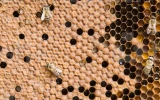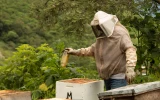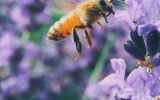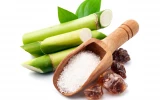When To Stop Feeding Bees Sugar Water?
Prolonged periods of unfavorable weather conditions and a shortage of nectar are some of the few reasons why bees need to rely on sugar water for an energy boost. Although this practice is still being debated by beekeepers, some have already introduced a sugar water diet to their hives. But what signals us to stop feeding bees sugar water?
You may stop feeding bees sugar water when a previously weak hive becomes an established hive, with combs drawn, a queen actively laying eggs, and nectar being stored. A good nectar flow and consistently warm weather conditions also signal that sugar water feeding should now be stopped.
There is no specific timing for when to stop feeding bees sugar water. Beekeepers need to stay alert and continue monitoring the hive, especially if it is newly purchased and if supplemental feeding is still necessary. This article will tackle the most important signals you need to watch out for to know when to stop feeding your bees sugar water.
Summary
- An established hive does not need to be fed with sugar water.
- A weak or new hive will need supplementary feeding by providing sugar water to redirect them to do their tasks.
- A hive with drawn combs, a healthy queen laying eggs, and good honey production under warm weather and good nectar flow conditions must not be supplemented with sugar water.
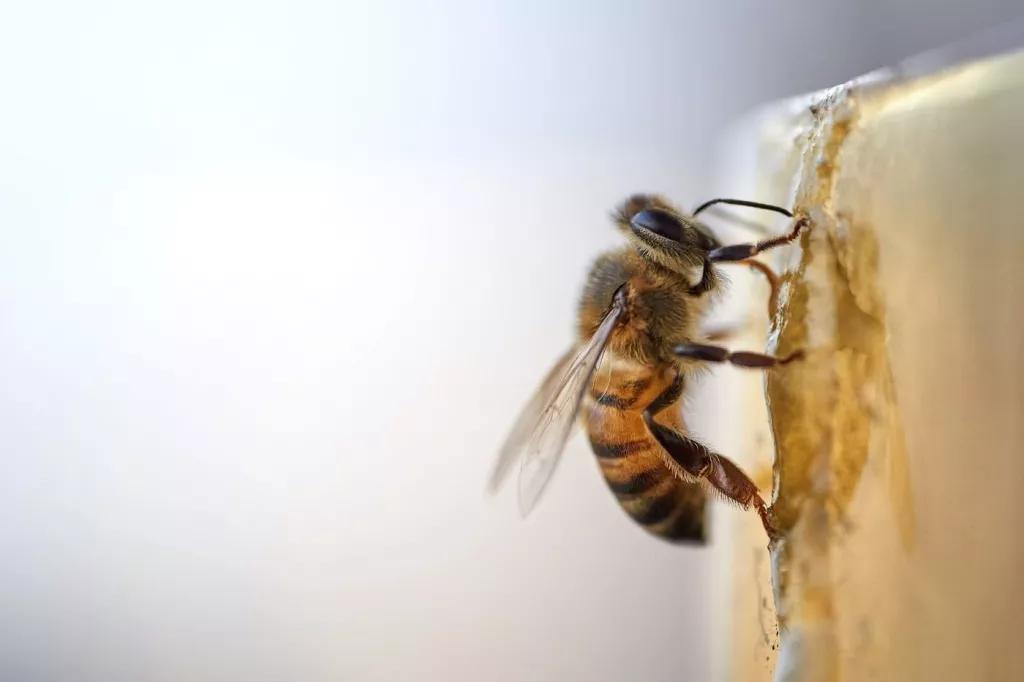
On this page:
Signs to Stop Feeding Bees Sugar Water
Sugar water is a temporary substitute for nectar that beekeepers make and feed to the bees under certain circumstances. It is made up of white cane sugar dissolved in water. White cane sugar is the sugar of choice as it is cheaper and has no additives that might be toxic to bees.
Bees can provide food for themselves under normal conditions. However, there are certain instances when they will need human intervention to survive. During this time, beekeepers may provide an additional food source for bees, such as sugar water.
Bees should be fed sugar water under the following circumstances:
If the hive is just new
A newly introduced hive will have a lot of work to do. From fueling flights of foragers, feeding the queen, building the brood, making wax combs, and storing honey, a lot of tasks need to be performed. With these, sugar water can help jumpstart the bees to suit up for work.
If honey production is low
Remember that bees make honey for their consumption too, especially during winter when they cannot forage. Honey serves as their food source. However, a weak hive may fall short in honey production before winter. Checking your hive by mid to late-summer can help you see if your hive needs to be fed sugar water to create and store more honey.
If there is nectar dearth
Flowers will not always be in bloom, so technically speaking, nectar is not always available to bees. Bees, however, have alternative food sources when nectar is scarce. Their main source of food when nectar is not available is honey. But when these resources run out, which beekeepers should monitor, sugar water can be fed as a supplementary feed.
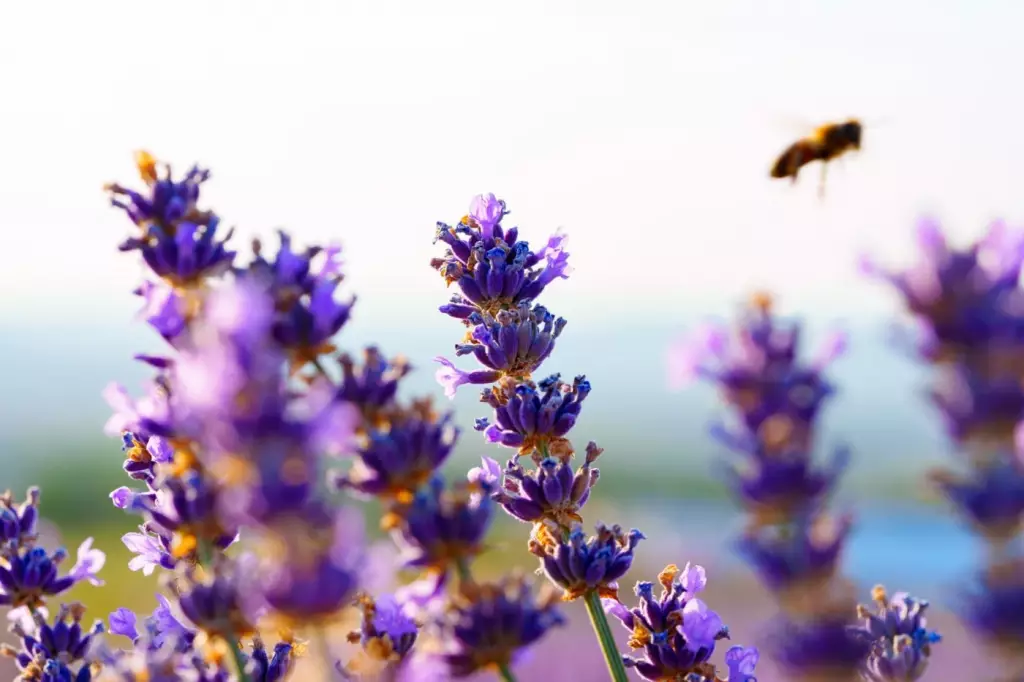
If the weather is unfavorable
Bad weather conditions won't allow bees to forage; therefore, they won't be able to feed on nectar. In these instances, you can help the hive survive by providing sugar water as a supplementary food supply.
The duration of feeding bees sugar water depends on why you started feeding them in the first place; whether they are a new or weak hive, there is nectar scarcity in your area, or a consistent bad weather condition keeps happening.
There is no specific time to stop feeding them sugar water, but there are tell-tale signs. You may stop feeding bees sugar water when a hive has drawn out combs, a queen is actively laying eggs, and there's a good amount of nectar being stored.
When flowers start to bloom and nectar flow is good, you may stop feeding bees sugar water. Additionally, when the weather becomes consistently warm, you can now halt the supplementary feeding.
Why Stop Feeding Bees Sugar Water?
Anything too much has consequences. This is the reason why, at some point, sugar water feeding must be stopped. It is only fed to bees when they are in dire need. Otherwise, they can do just fine. The following are the reasons why feeding bees sugar water should be stopped at some point:
-
Exposing sugar water in feeders promotes a heightened risk of hive robbery. Robbing happens during nectar dearth, and having too much sugar water supply may cause feeders to overflow. It's best to put the sugar water inside the hive at night, but make sure it's just the right amount to be consumed by your colony.
-
An overabundance of sugar may cause bees to store sugar as honey. This is why beekeepers must make sure that the amount of sugar water being fed to the hive will be consumed before the honey flow.
-
If bees become too dependent on sugar water, they will not forage for nectar anymore. This could greatly affect pollination. With no pollination, there will be less crop production. And with bees not pollinating flowers, flowers will cease to exist, and bees will have fewer nectar sources by the following year.
-
Sugar water feeding to bees must not be run long term as it is technically junk food for bees. Sugar water provides no benefits to bees and is more of an empty carbohydrate source. It doesn't have the amino acids needed by bees to produce the enzymes they need in honeymaking, which is the enzyme "invertase."
-
Excess sugar water feeding can easily multiply several diseases. If we look at how it is prepared, there will already be circumstances in which it may be unsanitary in some form. Putting it in a feeder where bees will accumulate to feed further intensifies the chances of spreading diseases as they are landing on the same spot each time, unlike when they fly from flower to flower. Feeding liquids in the form of sugar water can be harmful to the colony as it heightens the risk by which Nosema disease proliferates.
How Much Sugar Water Do Bees Consume?
Bees will consume varying amounts of sugar water depending on several factors, including the size of the colony, how hungry the bees are, and the previous season. Most beekeepers, however, start with 1 quart of sugar water daily for 5 days and observe the rate at which bees deplete the supply.
If in an hour the sugar water has been fully consumed, they will escalate the supply to 2 quarts of sugar water daily for 5 days. Note that this is the maximum amount of sugar water that can be fed to bees, as they may be overfed, which has irreversible consequences.

Can Bees Have Too Much Sugar Water?
As mentioned, it is possible to overfeed your bees with sugar water, but it is never a good idea because of its consequences for the colony, such as:
- Having no health benefits. Sugar water does not provide any health benefits to bees and can be considered junk food for them. Unlike nectar naturally produced by plants, sugar water does not contain the necessary enzymes and amino acids that bees need.
- Causing the production of too many worker bees. Remember that sugar water feeding induces increased brood rearing to produce as many workers as possible before the blossom period. Consuming too much sugar water increases the production of worker bees, which, instead of being helpful in the collection of nectar, might just further deplete their resources.
- Contributing to a possible case of swarming. Following the event of overproduction of worker bees, the colony can become overcrowded and thus split.
